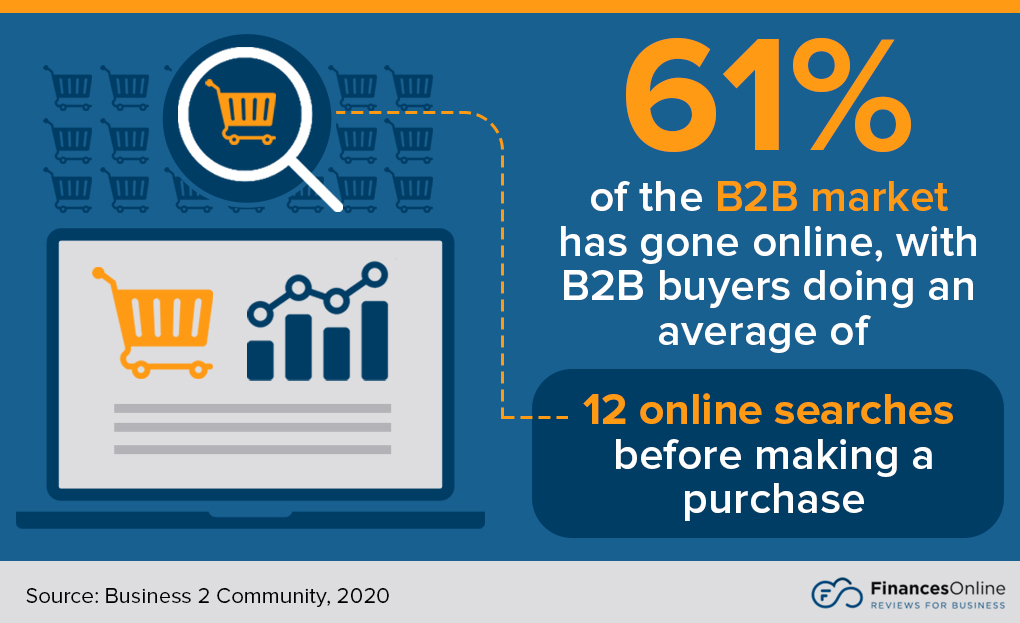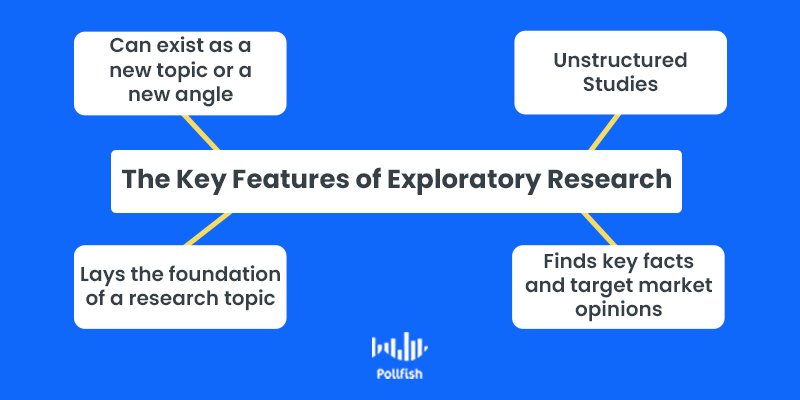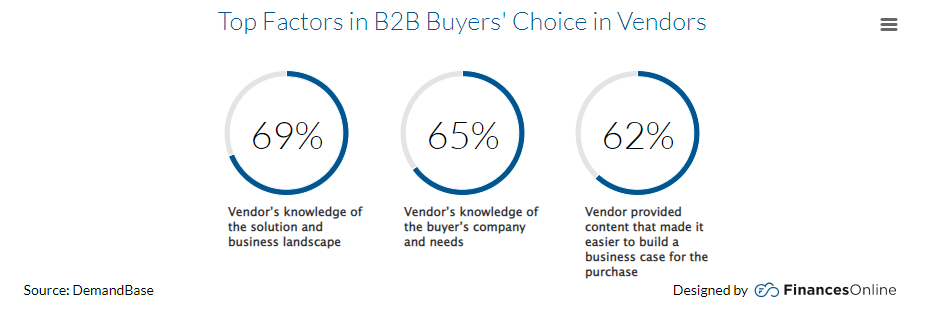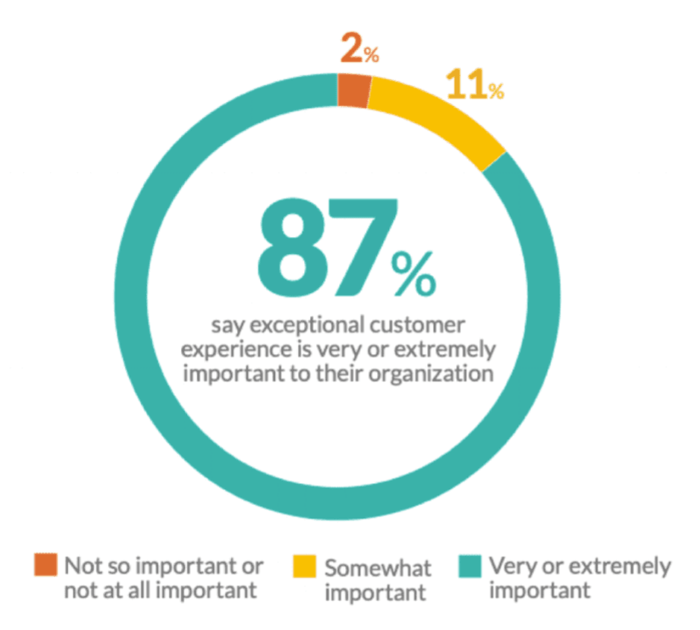Boost your business marketing potential with B2B surveys

Table of Contents
Data is the beating heart of most profitable enterprises. Businesses need quality information to help them make key decisions, such as those relating to product development and marketing campaigns, and even when deciding which strategies will best address employee concerns.
Information can be gathered through a variety of indirect methods. For instance, to find industry trends or benchmarks, you can look for yearly research papers or read trade periodicals. And metrics such as time spent on a page or user click rates can help you measure the effectiveness of your online content.
However, for certain data, you need to obtain it directly from the best source: your customers. After all, what could be better than getting insight straight from the horse’s mouth?
Surveys enable B2B (business-to-business) enterprises to gather key information that helps them better understand their customers’ pain points, the markets they are operating in and how well they are communicating their brand image.
With a significant percentage of the B2B market going online, companies more than ever before need to fully grasp the factors that drive their customers’ behaviour.

Even B2C (business-to-consumer) businesses can profit from B2B surveys to strengthen their ties with partners and other corporate clients.
Alongside other affiliate marketing resources, such as lead capture and generation tools, surveys form an integral part of the B2B marketing toolkit.
We’re going to take a closer look at the importance of B2B surveys and how your business can utilise them to generate leads and expand its operations.
What are B2B surveys?
A B2B organisation can better understand and serve its partners, corporate clients and leads by asking them to give their opinions via a B2B survey.
These surveys serve the dual purpose of supporting customer retention and lead generation. They not only show existing customers that you care and help you keep them satisfied, but they also offer a way to nurture and convert leads.
What are the different types of B2B surveys?
You must first identify which type of survey would best satisfy your current research objectives and which take into account the idiosyncrasies of your business and clients.
Thinking carefully about the kinds of surveys you need will provide you with more relevant results. This will benefit various parts of your business by addressing problems that can be specific to each department.
For your upcoming B2B research campaign, we’ve highlighted some of the most practical survey choices.
Exploratory surveys
Exploratory surveys are an excellent choice when you have not fully identified the information you need.
For instance, let’s say you want to enhance the features of a product and gauge your customers’ response to the proposed changes. Or maybe you might want to find unexplored concepts or insights through employee feedback. Exploratory surveys are a great way to do this.

Verbatim queries are commonly used in exploratory research so that participants can give feedback without being prompted to give a certain style of answer.
Descriptive surveys
These kinds of surveys are helpful when you want to determine certain features of your audience.
They are best used to answer questions centred around who your clients are, what they enjoy doing and what interests they might have.
Descriptive surveys are effective when you want to carry out research in B2B markets, where the individuals within partner organisations can be wildly varied.
Comparative surveys
Comparative surveys are useful when you want to learn more about your target audience and ask similar questions later on to compare the results from two datasets.
A B2B brand tracker is frequently used to conduct this kind of poll, which can be used to determine how your company compares to the competition.
This data can be filtered based on locations, organisation size and produces insights that can inform development decisions.
Modelling surveys
This survey style is beneficial when attempting to identify factors that may contribute to a certain outcome.
For instance, you might be interested in knowing how a price increase or proven time management techniques might affect overall sales. You may also need to analyse the potential impact on sales if you try charging extra for added features.
How can B2B surveys enhance your business’ marketing efforts?
Your B2B marketing campaigns stand to gain a lot from surveys. Here are some benefits you can look forward to.
Understanding the target market
Surveys are a great way to glean important information about your target audience. The responses you collect can guide your core marketing plan initiatives and influence your performance.

User feedback
When you update items or develop new ones, detailed customer feedback can provide you with golden nuggets of information. As you get more feedback, you will be more certain that your newest features or goods match customer expectations.
Getting user feedback on a product is also an effective way of enhancing your digital consumer engagement efforts via channels such as social media and live chat. More and more, social media has proven itself to be a useful tool in marketing, given that 38% of businesses are performing social listening to make better decisions.
How can B2B surveys help you generate leads?
There are several ways to create leads, move prospects through the sales funnel and maintain positive business relationships with your existing customers and business partners.
If you need to brush up on your sales skills, it’s worthwhile enrolling in sales training.
Here are some examples of how using B2B surveys can help you generate more leads.
Discovering MQLs
B2B surveys enable you to collect essential identifiers such as firm names, job titles, complete names, phone numbers and emails.
Based on firm size, financing stage and the respondent’s function, these indicators by themselves can assist you in identifying which respondents are MQLs (marketing-qualified leads) so that you know what kind of content marketing to direct them to.
Valuable insights into buyer readiness
With the help of B2B surveys, you can determine who is interested in a long-term business partnership and who are serious buyers.
For example, contracts are a common way for SaaS businesses to acquire new clients. Whether it’s an extended contract or a one-time purchase, you can ask specific questions about buyer readiness in a B2B survey.
Enhancing your content strategy
B2B surveys provide you with information about customer content requirements and preferences for prospects who need further encouragement.
Certain leads may prefer quick-to-digest information like infographics or guides with titles like ‘10 Top Zoom Alternatives’. They don’t care what type of material it is, provided that it showcases your product.
Or it may be that your nurturing programme needs to include more relevant material. This information can be found in a B2B survey, which can also identify trends in your sector by including questions about them.
Improving the customer experience
Businesses have started recognising the value of optimising the customer experience.

B2B surveys help you identify the problems prospects have with your brand. These can already exist in your goods or services and influence the user’s experience.
B2B surveys help you identify the problems prospects have with your brand. These can already exist in your goods or services and influence the user’s experience.
If so, you can utilise these insights to increase customer retention as they will help you in addressing customer complaints. You can also attract more leads by identifying issues within your sales funnel.
In either case, being aware of these problems and working to solve them will make your leads feel as though you value their concerns and can offer solutions.
Scale Your Business with B2B Surveys
There are numerous marketing tools you can use, such as SMS for business, which will have quantifiable positive impacts on businesses. And beyond specific tools, you can use also harness the power of content to engage and build relationships with your B2B customers, corporate partners and prospects.
But to create this content, you need a solid grasp of your B2B customers’ needs and dislikes. This is where B2B surveys come in.
They really are essential in helping your business to develop and thrive. From analysing your B2B customers’ preferences to boosting retention, gaining new leads and encouraging them along the funnel, using surveys really is a no brainer in today’s competitive digital landscape.

Grace Lau
Director of Growth Content, Dialpad
Grace Lau is the Director of Growth Content at Dialpad, a cloud communication platform powered by AI technology that includes sales coaching functionality for better and easier team collaboration. She has over 10 years of experience in content writing and strategy. Currently, she is responsible for leading branded and editorial content strategies, partnering with SEO and Ops teams to build and nurture content. She has written for domains like eClincher and Mirasee. You can connect with her on LinkedIn